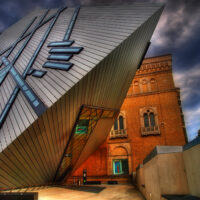000
100
%
Digital Humanities

Présentation
ARHN intends to renew the dynamic of methodological innovation in digital history by placing the emphasis on the personal research of LARHRA members using digital tools and digital methodology applied to research in the historical sciences, addressing a central question: how can we acquire the methodological skills needed to carry out research in the historical sciences in the new context of the digital revolution? The project is structured around two themes, digital technology being used as both a tool and an object for research in the historical sciences, as well as an infrastructure project, Geovistory.
The ARHN project requires participants to have digital skills of a certain proficiency. The researchers involved in the ARHN thus intend to conduct work in digital history (in the two senses indicated above) and work in a context of collaborative research in history and methodology on their own projects. The engineers who participate in ARHN’s work support this collaborative research approach, articulated in two inseparable themes and an infrastructure, in the model of a mixed researcher-engineer team.
The Digital History Research Area (ARHN) aims to extend and develop the specific skills and experience acquired over more than ten years within the Digital History Unit, which are recognised both nationally and internationally.
Thématique 1
Historical research with digital tools
This first theme presupposes the personal acquisition of digital skills by participants, both in terms of techniques and knowledge of available resources.
As part of a collaborative research approach, the Digital History Research Area organises workshops led by internal and external speakers on tools, methods, and good practice, in particular the FAIR principles which, in the context of Open Science, define good ways of structuring, storing, presenting, and publishing data so that it is “findable, accessible, interoperable, and reusable”. By using the tools made available by ARHN, including the Python research platform, the ontologies management application OntoME, and the Geovistory virtual research environment, participants will become part of the Open and Linked Data (“LOD”) context.
Scientific coordinator: Julien Caranton
Thématique 2
Research into digital methodologies for historical disciplines
The first of two main facets to this theme consists in the development of shared skills in data analysis and visualisation, as well as in the use of open research data available in the form of websites or interoperable access points. The second involves the animation and promotion of the international Data for History consortium, which concerns the following :
– methodological reflection on models and ontologies, in particular those used by the GLAM institutions;
– the development of the OntoME ontology management platform and methods and infrastructures for integrating online data and platforms;
– collaboration with other national and international players in this sector, such as the Data for History consortium, the Agence bibliographique de l’enseignement supérieur, and the SIG (scientific committee) of the CIDOC CRM.
The emphasis in both sections is on the methodological and epistemological challenges of digital history, as well as on promoting research in history and art history using digital methods and tools.
Scientific director: Francesco Beretta.
Thématique 3
Research infrastructure: Geovistory
Since January 2021 and in collaboration with the start-up KleioLab, LARHRA has been involved in the development of Geovistory, an infrastructure for research that builds on the symogih.org project.
In line with the themes of the ARHN, this infrastructure aims to provide researchers from the laboratory and the historian community as a whole with a user-friendly virtual research environment suitable for both private and funded projects (ANR, ERC, etc.). Geovistory enables the production of data in line with FAIR and Open Science principles, as well as its analysis, visualisation, and publication in connection with open and linked data (LOD).
Since February 2023, new partners have joined the Geovistory consortium as part of the swissuniversities LOD4HSS project led by the chair of digital humanities at the University of Bern.
Scientific leader: Pierre Vernus.
